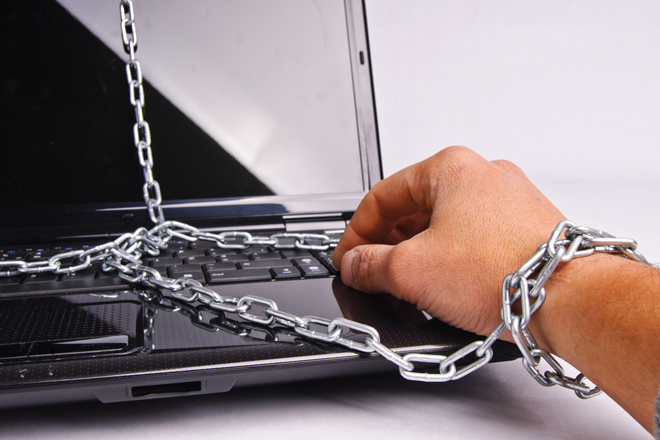Even in the early days of Facebook, when I was working there, I felt the occasional, illicit desire to take a break from my online life, feeling a slight unease with the fact that a virtual version of my self floated online at all hours, almost as if it had a life of its own, separate from my own activities, moods and experiences. Desiring some virtual “solitude,” I would think, “I’ll just deactivate my account for a day; no one will notice,” and click the deactivate button. Like a psychiatrist self-analyzing, I paid close attention to how I felt during my deactivated period: freer, calmer, less concerned with my virtual persona and whether it portrayed me in a blithe, cool way online.
But since I worked at Facebook and living and breathing the network was part of my job (literally, many of my work tools were tied to my Facebook account so I had to be logged in to use them), I reactivated my account the next day to a notification that a co-worker had tried to tag me in a photo while my account was offline. “I think Kate deactivated because I can’t tag her,” he said in the comments under the photo, seeming disconcerted that I was not available. Like New York City, social technology never sleeps. And like vacations, our hiatuses from our online selves are little more than a reminder of carefree living that make tolerable our return to the hyperlinked, constantly connected world that has continued to call on us regardless of our absence.
Now that Facebook has reached ubiquity, the practice of taking vacations from our online presences has become a recurring ritual for some, like juice fasts or trips to remote cabins. “She’s so overwhelmed, she’s taking a Facebook break,” a friend said, and we all nodded understandingly. Many of my friends have reached the point where we activate and deactivate our accounts several times a month, depending on our mood, level of busyness, and desire to deal with the online dramas that can arise when everyone is connected. But why do we feel overwhelmed, if Facebook is all about party invites, flirtatious posts, the latest funny YouTube video or the picture of a distant cousin’s cute toddler? “I had to deactivate because my conservative friends from back home were getting in fights on my wall with my liberal friends in New York,” a friend told me. “I broke up with my ex and had started dating again, and having a Facebook profile got too complicated, with different dates posting on my wall and my ex potentially seeing it all,” said another. The ease of Facebook — the way it brings everyone together, from every region of our lives, on the same playing field — makes it complicated, and perhaps, less like an efficient version of real life than like something different: a new, monotone, virtual world where everyone always appears poised, cheerful and untroubled.
When they are “on vacation” from social media, people bask in their freedom from virtual performance, from worrying how they look in tagged photos, from having to check the computer to see whether they’ve been mentioned, messaged or “checked in” online. And perhaps most important, they enjoy the freedom to make plans and see friends in person rather than online and by mass Facebook invite. There is something almost luxurious, now, about sitting down to a drink with a friend on a bar patio, with nothing but the summer air and early evening light between you. And yet in most cases, these Facebook breaks do not become permanent deletions.
If this freedom feels so good, why do people come back to social media, reinstating their accounts and rejoining the race for “likes” and ”shares”? The answer may lie in the other thing that Facebook does for us: generate publicity. Just as brands compete for “likes” and “subscribers” on Facebook, we do the same for our personal brands, maintaining an ambient awareness of ourselves, of the fact that we are in the world, doing stuff, existing, looking cool, being available for attention, compliments and invitations. And when we have something to sell: a new Etsy store, a blog, or simply our presence at parties, it works for us, just as it works for a company announcing a new product on its Facebook page. Facebook pages for brands look exactly like the pages for individuals, because they serve the same function. They are a place where, like it or not, we are in the business, however unconsciously or uncomfortably, of promoting ourselves to the world.


